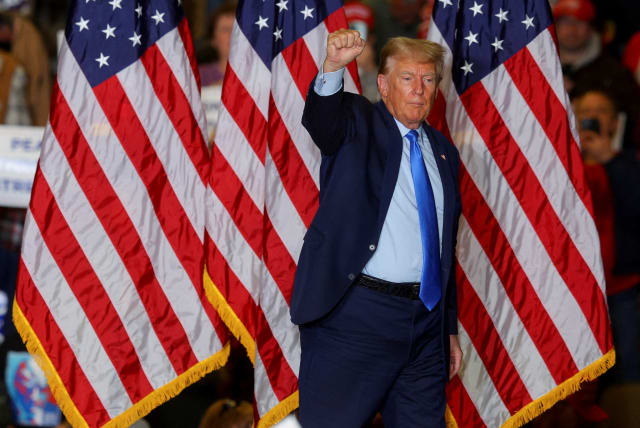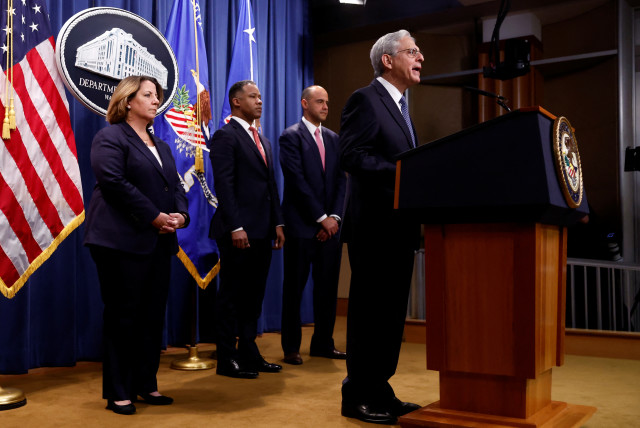Judge rejects Trump immunity claim in federal 2020 election case

Chutkan's ruling brings Trump a step closer to facing a jury on charges that he plotted to interfere in the counting of electoral votes and obstruct congressional certification of Biden's victory.
Donald Trump does not have immunity from criminal charges for actions he took as president, a US judge ruled on Friday, rejecting his bid to toss out the case brought by Special Counsel Jack Smith accusing him of unlawfully trying to overturn his 2020 election loss.
US District Judge Tanya Chutkan found no legal basis for concluding that presidents cannot face criminal charges once they are no longer in office. Trump, the frontrunner for the Republican nomination to challenge Democratic President Joe Biden in the 2024 US election, served from 2017 to 2021.
"Whatever immunities a sitting president may enjoy, the United States has only one chief executive at a time, and that position does not confer a lifelong 'get-out-of-jail-free' pass," Chutkan wrote in her ruling.
Because Trump is the first current or former US president to face criminal charges, Chutkan's ruling is the first by a US court affirming that presidents can be charged with crimes like any other citizen.
The judge also rejected Trump's argument that the charges violate his free speech rights under the US Constitution's First Amendment. Trump's lawyers had argued that the case by Smith "attempts to criminalize core political speech and political advocacy."
Todd Blanche, a lawyer for Trump, declined to comment on the ruling.
One step closer
Chutkan's ruling brings Trump a step closer to facing a jury on charges that he plotted to interfere in the counting of electoral votes and obstruct congressional certification of Biden's victory. Trump has pleaded not guilty and accused prosecutors of attempting to damage his campaign.
The trial is scheduled to begin in March. Trump can immediately appeal the ruling, which potentially could delay the trial while an appeals court and potentially the Supreme Court weigh the issue.
Trump has additional pending legal motions to dismiss the case based on other claims including that his conduct as alleged by prosecutors does not fit the charges they brought. In addition to the case being pursued by Smith, Trump also faces state criminal charges in Georgia related to his actions seeking to undo his 2020 defeat and two other indictments. He has pleaded not guilty in those cases as well.
The US Justice Department long has had an internal policy not to indict a sitting president, but prosecutors said no such restrictions exist once a president leaves the White House.
Trump's lawyers had made a sweeping claim that he is "absolutely immune" from charges arising from official actions he took as president, arguing that political opponents could use the threat of criminal prosecution to interfere with a president's responsibilities.
His defense team argued that the immunity US presidents have from civil lawsuits should extend to criminal charges.
Prosecutors contended that Trump's argument would essentially put the US president above the law, violating foundational principles of the Constitution.
Jerusalem Post Store
`; document.getElementById("linkPremium").innerHTML = cont; var divWithLink = document.getElementById("premium-link"); if (divWithLink !== null && divWithLink !== 'undefined') { divWithLink.style.border = "solid 1px #cb0f3e"; divWithLink.style.textAlign = "center"; divWithLink.style.marginBottom = "15px"; divWithLink.style.marginTop = "15px"; divWithLink.style.width = "100%"; divWithLink.style.backgroundColor = "#122952"; divWithLink.style.color = "#ffffff"; divWithLink.style.lineHeight = "1.5"; } } (function (v, i) { });

